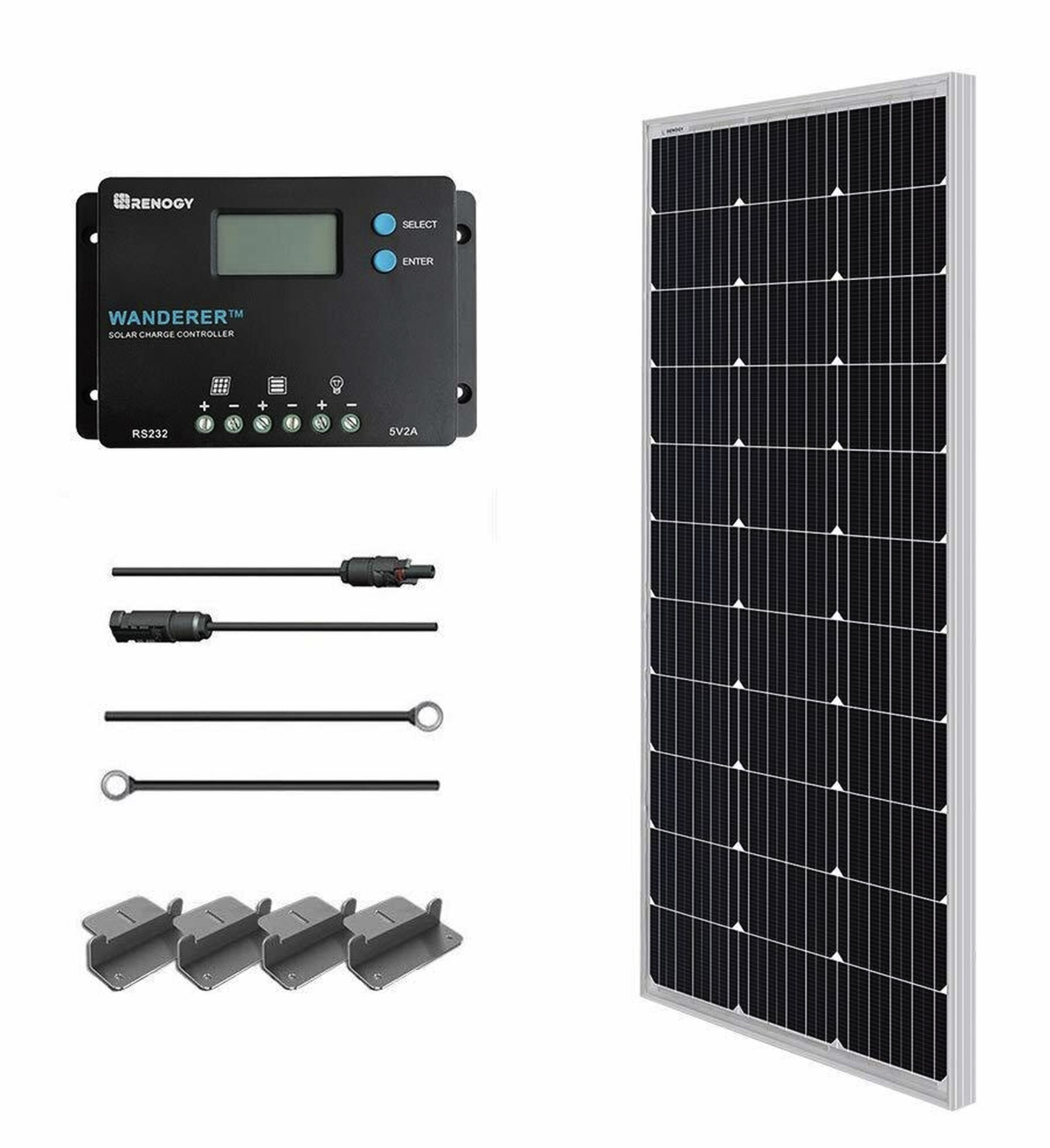Hi-van is supported by its audience. When you purchase using our links, we may earn an affiliate commission (no added cost to you). Learn more
Do you enjoy watching TV but don’t know how to power it in your camper van? Fortunately, there are a number of ways to power a TV in a van.
To power a TV in a van, you must get a 12-volt TV and hook it up to your car battery. For other TV types, you can get an inverter. You can also hook up a second deep cycle battery to your car alternator, get a generator, hook your van up to a campsite every night, and install solar panels.
If you would like to learn more about all of these methods in depth, continue reading this article.
Get a 12-Volt TV
Most batteries of vans and other vehicles run on a 12-volt direct current. This means that if you want to watch TV in your car without buying additional equipment such as an inverter, a second battery, a generator, or solar panels, you can just buy a TV that is designed to work with your car’s battery.
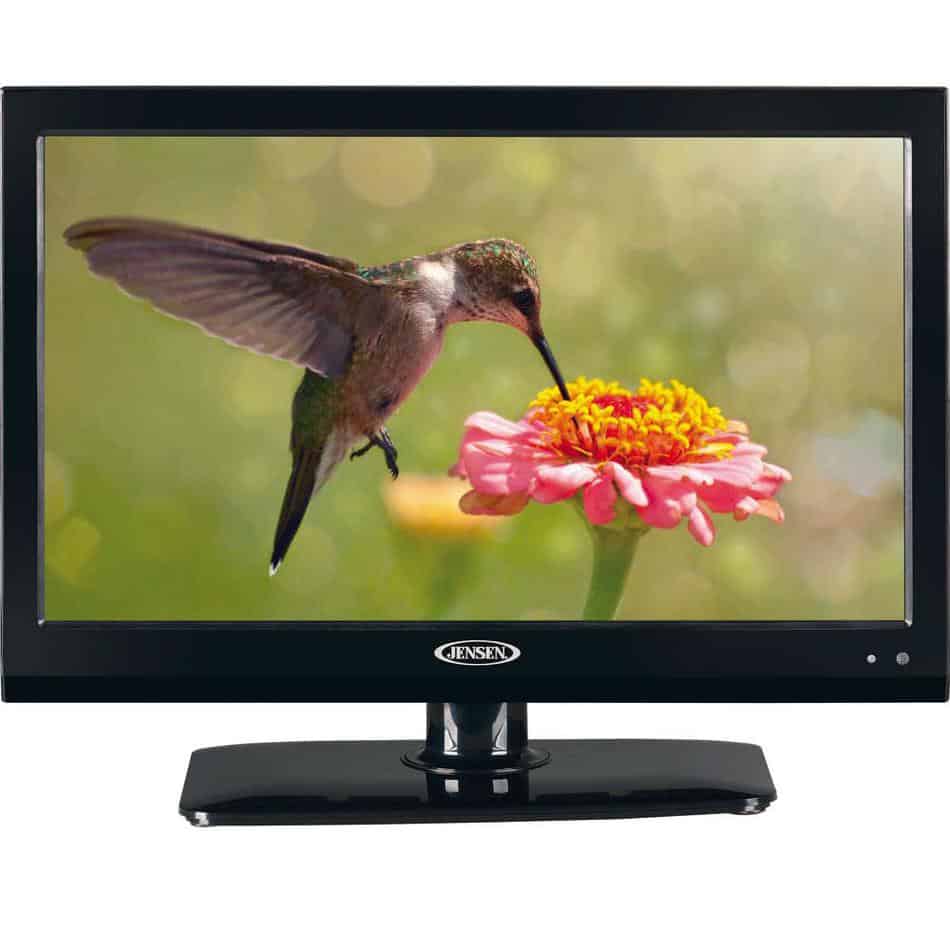
These 12-volt TVs will hook up directly to your van’s accessory outlet, as your phone does, and you will be able to watch TV immediately.
The downside of doing this is that these TVs’ quality may not be what you are used to with your home TV. In general, there are many 12-volt appliances designed to work with your van’s outlet, but they tend to be less efficient than standard home appliances. For example, if you are trying to heat up water with a 12-volt kettle, it will take a lot longer than doing so with a regular kettle.
Nevertheless, it is a decent option and has many upsides, such as not carrying around a larger TV or buying special equipment. This Free Signal 32″ Transit TV runs on your vehicle’s DC battery. It has a LED display with a 1366 x 768 resolution, and it can be mounted onto your van’s wall or placed on a table or on the floor.
Related Articles: How to: Secure your camper TV in 6 steps How to Power a TV in a Van: The Complete Guide Can You Watch TV in an RV While Driving?
Use an Inverter
You can buy an inverter that will change your car battery’s 12-volt DC power to a higher-volt AC power. The type of inverter you will need will depend on your wattage usage.
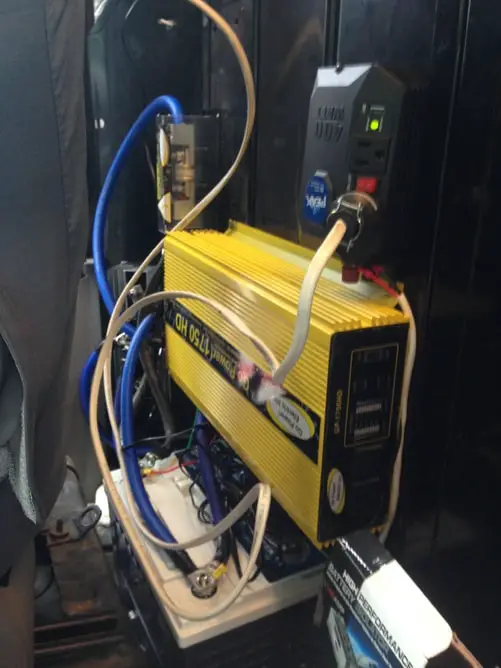
For example, if you are using a TV that uses 60 watts plus a few other appliances that use 40 watts altogether, you will only need an inverter that has an output of 100 watts. However, it is best to spend a little extra money on a larger inverter to give yourself some wiggle room.
This Ampeak 1000W Power Inverter Truck/RV Inverter has an output of 1000 watts, which should be enough for most van lifers. However, it only converts your van’s 12V DC to a 110V AC, so make sure to use it with a TV that runs on 110V.
The great thing about this is that it has a continuous current of 1000W with a surge power of 2000W; it is important to look at the continuous power output instead of the surge (or top) output if you don’t want interruptions.
The problem with this method is that your van’s battery is not designed to power your vehicle and all of your home appliances simultaneously, so even with an inverter, you may struggle. A good alternative would be to buy a second deep cycle battery, which you can hook up to your van’s alternator.
Related Articles: 7 reasons your RV invertor makes noise (with fixes) What size inverter do I need for my van? This is why your RV inverter beeping
Use Your Van’s Alternator
A great option that will allow you to get a lot of power even when you are not driving your vehicle is hooking up a second deep cycle battery to your van’s alternator. The alternator is a small piece in the van’s engine that produces electricity, and you can use it to charge a second battery so that you do not rely entirely on your van’s built-in battery.
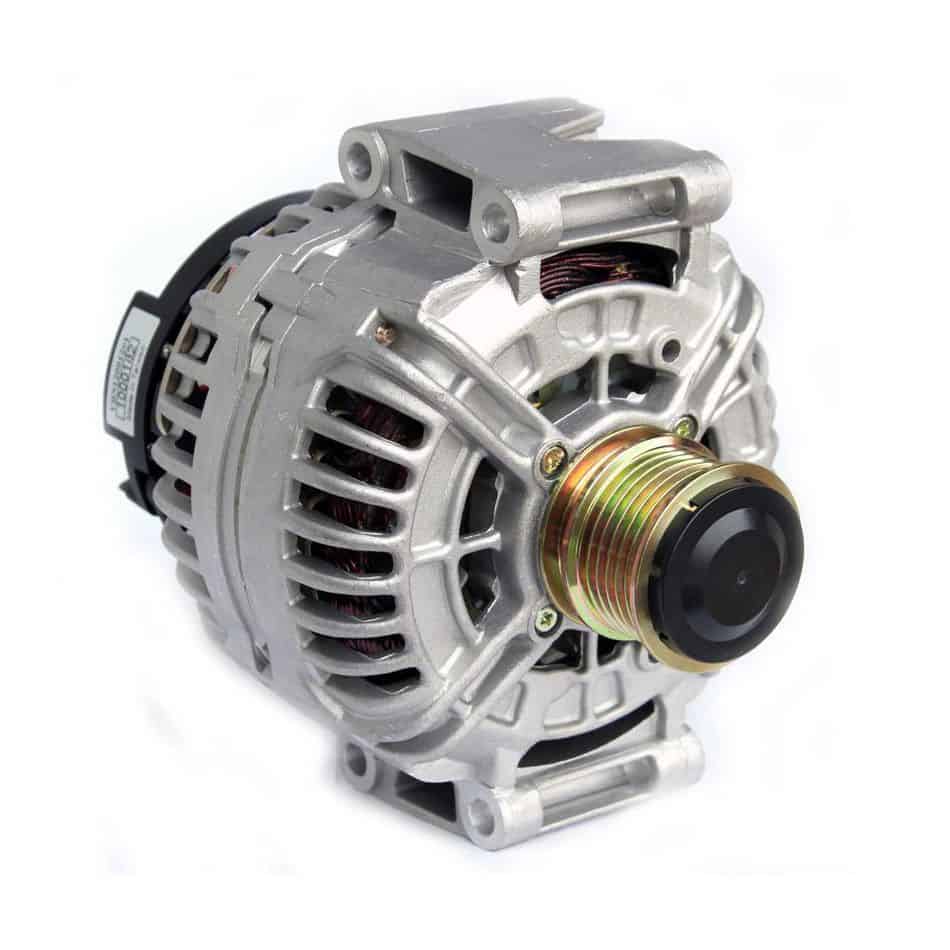
However, this is still not the best option as the alternator is mainly designed to start your van’s battery and not a second battery. This means that you may not be able to charge the second battery from the alternator fully.
In addition, you will have to be driving a lot, every day, if you want to do this, according to Parked in Paradise. Just letting your van idle while you charge this battery is not good for your van, either.
Another option is getting a larger, more powerful aftermarket alternator that will produce more power so you can charge both batteries.
Hook Up to a Campsite
Another option is parking at a campsite that provides electrical RV hookups. These are not very expensive as they can cost as little as $20 a night. However, this is mostly an option if you park at campsites often, in which case you may not need to invest additional money in solar panels or a generator.
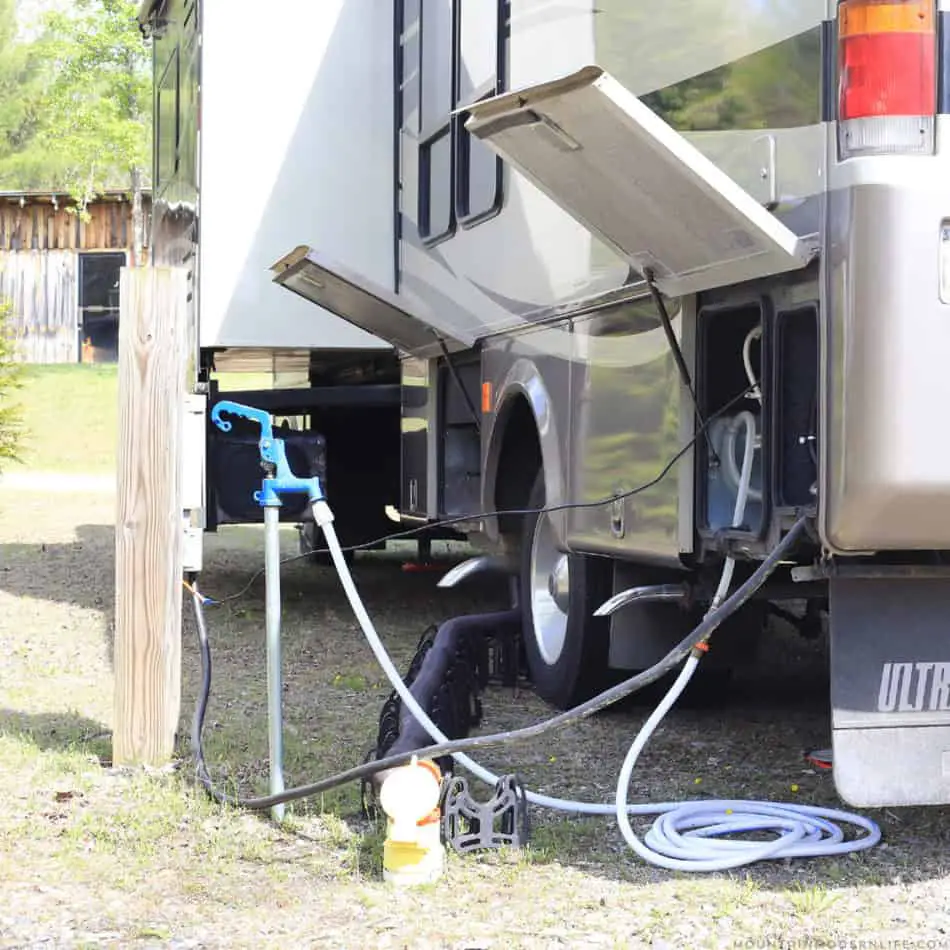
You can also hook up to a campsite occasionally but still use some of the other methods listed in this article at other times. If you only go on weekend trips and stay at campsites, this is an excellent option. Make sure to get a smart battery charger so that you can easily charge your battery at the campsite.
Related Article: Do Most Campsites Have Power Outlets?
Get a Generator
Instead of relying on your van’s alternator (or even an aftermarket alternator) or campsites, consider getting a generator for your vehicle. There are many generators or portable power banks that are small and powerful. The size will depend on your needs.
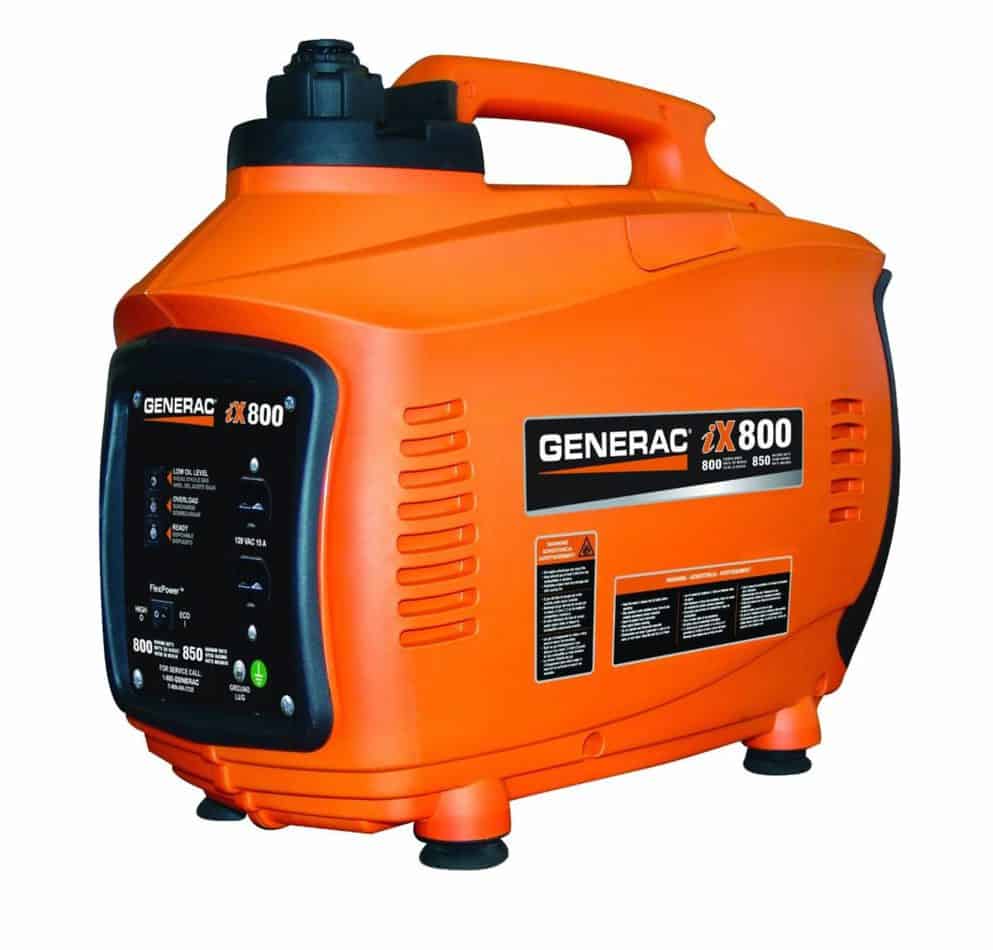
For example, you can get this small and inexpensive Jackery Portable Power Station Explorer, which produces up to 200 watts of power. It is best for small electronics and can even be charged with solar energy.
Alternatively, you can get this Champion Power Equipment generator, which can produce up to 3,500 watts and can be run on either gas or propane without even needing electricity to charge it. These types of generators tend to be a bit louder, but you can shop around for quieter ones. There are even generators that provide up to 12,500 watts.
Related Articles: Camper generator size: How big should you go? Can you sleep in an RV with the generator running?
Use Solar Energy
Related Guide: How do solar panels work on a van? (an in depth look)
Let’s touch upon solar energy, which is a great option for powering your van or RV while keeping the environment safe. You can buy foldable, portable solar panels that you can store inside your RV, or you can fix solar panels to your roof if you do not have space to store them inside. You can hook up your second battery to these panels so that you can continue to get power at night.
The Renogy 100W Solar Power Starter Kit is perfect for new customers wanting to get a start in solar. The Starter Kit is great for off-grid applications, such as RVs, trailers, boats, sheds, and cabins.
You have either this Monocrystalline Solar Starter Kit from Renogy to put on your roof, or you can opt for a portable solution like, for example, this Renogy 100W 12V Monocrystalline solar panel kit. It comes with a kickstand so you can place it towards the sun at any time. Monocrystalline
Use a Combination of These Options
Finally, another option is using a combination of these options. For example, you can hook your battery up to your alternator when you are driving your van or when it is cloudy but switch to solar energy when you are not driving and when the day is sunny.
Conclusion
There are so many options for getting electricity in your van and powering your TV. If you are looking for the easiest, most straightforward option, you should probably get a 12-volt television that you can just plug-in and start watching right away. The best options, which are more complicated, are using solar energy, using a portable generator, or hooking your van up to campsites.

